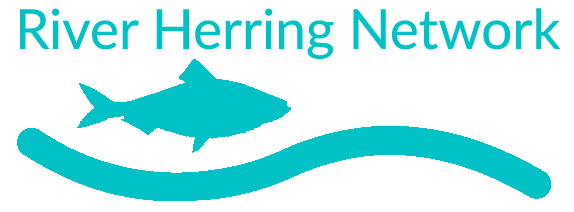RHN September 2012 Workshop Summary
On September 13 from 5:30-7:00PM the River Herring Network held its second workshop at the Bourne Veterans Memorial Community Center in Buzzards Bay. Seventeen people attended including seven wardens representing six different towns. Volunteer herring counters, members of fishing and watershed associations and two MA Division of Marine Fisheries staff members also attended.
Abby Franklin opened the meeting with several announcements including the New England Fisheries Management Council meeting on September 26 in Plymouth, MA, the results of the recent court case regarding the management of river herring within the Atlantic Herring Fishery Management Plan, and the date for the annual meeting of the Network in October. John Sheppard, MA DMF provided an update on the status of the petition to list river herring as endangered under the Endangered Species Act. More information can be found on these events on the RHN website under “Latest News”.
Brad Chase, Aquatic Biologist with the MA DMF began the program with a description of the Atlantic States Marine Fisheries Commission and how the recently (2009) updated Fishery Management Plan (FMP) for Shad and River Herring calls for the creation of sustainable fisheries management plans for states that would like their river herring fisheries open for harvest. The FMP defines a sustainable fishery as one “that demonstrates their alewife or blueback herring stock could support a commercial and/or recreational fishery that will not diminish potential future stock reproduction and recruitment.” States are required to develop sustainability targets which “may include, but is not limited to, repeat spawning ratio, spawning stock biomass, juvenile abundance levels, fish passage counts, hatchery contribution to stocks and bycatch rates.”
Brad shared examples of how the states of New Hampshire and South Carolina chose to define their sustainability targets. Brad closed the talk with three next steps for Towns: consider harvest goals, work with DMF to design a plan that will support those goals, and create or maintain a monitoring program.
The second half of the meeting featured two herring wardens – Jack Dixon of Wareham and Jeff Hughes of Wellfleet. Jack talked about his experiences as a biologist working for the state of Massachusetts, his duties as a warden, the fish ladders he maintains, and his observations about water quality and spawning habitat. He learned how to manage the Town’s herring runs from his father and based on his training as a biologist. He suggested that a course be developed for new herring wardens to take where they could learn about the life cycle of herring and their habitat needs.
Jeff Hughes spoke about his efforts to manage watercress and other non native species in the Herring River. Much of the Town of Wellfleet lies within the boundaries of the federally managed Cape Cod National Seashore and Jeff works to maintain active communication with the Seashore’s biologists and enforcement staff.
Participants filled out surveys and shared that they found both the presentations and discussions useful, and that they learned new information. They gave preferences for days and times to schedule workshops and gave suggestions for future topics. Three of the topics suggested will be included in the annual meeting agenda.
After the talks participants stuck around to eat pizza, ask Brad Chase and John Sheppard questions and to discuss herring matters with each other.
Abby Franklin
]]>